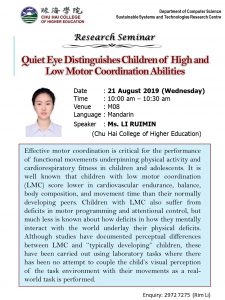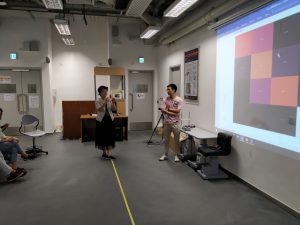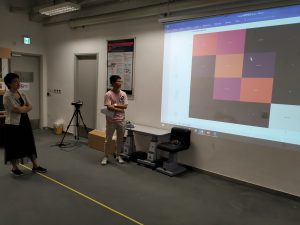
Date: 21 August 2019 (Wednesday)
Time: 10:00 am – 10:30 am
Venue: M08, Chu Hai College of Higher Education
Language: Mandarin
Speaker: Ms. LI RUIMIN, Research Assistant
Effective motor coordination is critical for the performance of functional movements underpinning physical activity and cardiorespiratory fitness in children and adolescents. It is well known that children with low motor coordination (LMC) score lower in cardiovascular endurance, balance, body composition, and movement time than their normally developing peers. Children with LMC also suffer from deficits in motor programming and attentional control, but much less is known about how deficits in how they mentally interact with the world underlay their physical deficits. Although studies have documented perceptual differences between LMC and ‘‘typically developing’’ children, these have been carried out using laboratory tasks where there has been no attempt to couple the child’s visual perception of the task environment with their movements as a real-world task is performed.


